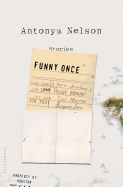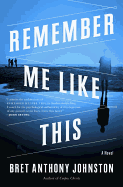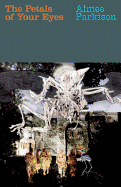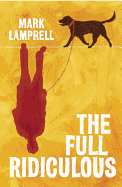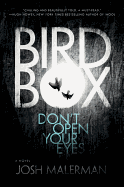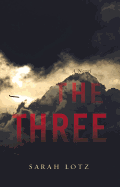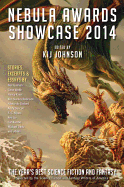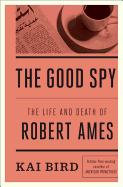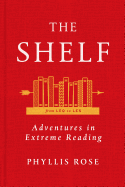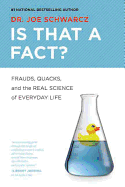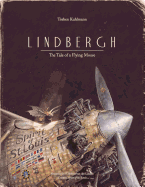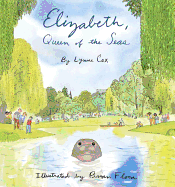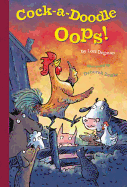 Molly Wizenberg's first book, A Homemade Life: Stories and Recipes from My Kitchen Table, aside from being charming and funny, contains the best banana bread recipe in the world. That may have been the first thing I said to her after "hi" when I met her recently to talk about her new book, Delancey: A Man, a Woman, a Restaurant, a Marriage (Simon & Schuster, May 2014), an account of how a musician and a writer opened a very successful pizza restaurant. Wizenberg says that the banana bread is the one thing she's tried the most recipes for, but she keeps coming back to the original. Check it out here.
Molly Wizenberg's first book, A Homemade Life: Stories and Recipes from My Kitchen Table, aside from being charming and funny, contains the best banana bread recipe in the world. That may have been the first thing I said to her after "hi" when I met her recently to talk about her new book, Delancey: A Man, a Woman, a Restaurant, a Marriage (Simon & Schuster, May 2014), an account of how a musician and a writer opened a very successful pizza restaurant. Wizenberg says that the banana bread is the one thing she's tried the most recipes for, but she keeps coming back to the original. Check it out here.
Then, sitting in the pizza restaurant of the title, the conversation turned to Delancey and its birth, fraught with DIY disasters, personal tensions and occasional thoughts of knocking over a bank and hiding out in Oklahoma.
You really should write a marriage manual after this. You lived through Brandon's obsessions with violin-making and perfect espressos, and aided and abetted his dream of a pizza place, all while maintaining a seeming patience and calm.
I'm glad that you read it as patience, because I struggled with it. If I get interested in something, I'm going to go for it, but I'm not going to tell anyone about it until I'm sure I can go for it, whereas Brandon has a more public way of going about it. That allows him to draw on more resources, which gives him a better chance of succeeding. One thing that drew me to him is the fact that nothing seems impossible for Brandon; he just goes after what he wants and does the work necessary to get there. He has a creativity and drive and a playful approach to life, he's gonna just be the best of what he wants to be. So even while I struggled with his not following through on these things, at the same time it was so closely related to what I loved about him. When we marry someone, or are committed to someone, there are always things that are not ideal. This was one of those things that privately I was working through. And I love him for it.
But you don't always play it safe. You took a big risk when you left your publishing job and grad school to be a writer.
I am only starting to see myself as someone who has taken risks. I have always thought of myself as being pretty risk-averse and change-averse, but I am just very cautious about what I undertake. Quitting graduate school to write: I had done it in such a way that it felt like I had a safety net, while it looked risky to other people. I had a job at University of Washington Press, so I had a way of earning a living.
After Brandon decided to master pizza and open a restaurant, you encouraged him while being afraid of the outcome.
I wrote this book because I was still trying to figure out why I struggled with this so much. I have more clarity now after finishing the book. Brandon and I were so newly married that I think I didn't know him very well. I didn't know that he was as savvy as he is about business. I knew that he was smart and resourceful and determined. But I didn't know that he could lead people, that he had a mind for business--so yeah, these things frightened me a lot since I knew him as a musician and a composer, albeit one who had a lot of different talents, but it scared the crap out of me. This could have been a very public--I'm not going to say failure, because I don't know I went that far, but I thought this would be publicly embarrassing if it didn't work out.
Now the book feels just as public. I feel like I am at my most vulnerable point with this book--but I got to sit around privately with people I trust and hash it out and make sure that I knew what I was doing before it goes public; whereas with the restaurant, it's so open and visible--you don't get to edit your mistakes.
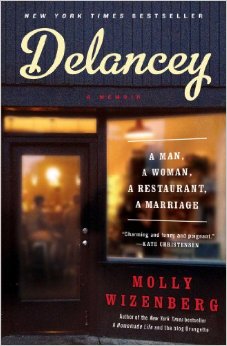 The season he was obsessed with dough, making and deconstructing recipe after recipe--were you surprised at his capacity to stick with something for the long run?
The season he was obsessed with dough, making and deconstructing recipe after recipe--were you surprised at his capacity to stick with something for the long run?
That was a big part of what scared me about this. I had only seen him get passionate about things and then move on. But he always saw this an ongoing challenge of pizza. The dough is a living organism, it is different every day. The oven is a little different every day. If it isn't heated properly in the afternoon it will be a problem all night--there is nothing that can be done to fix it. I think if there is one description that sums up Brandon, it's that he is a problem-solver. Pizza is the ultimate problem. That's why he stuck with this.
You said at one point, "You are a slave to the dough." You're very funny.
That was a big goal of mine with this book. I'm not very good at seeing the big picture, but I came to the place where I realized I really like funny writing. A goal for me with the book--in part because it was such a serious, difficult time in my life--was that I really wanted some humor in the book.
One of the themes throughout the book is the collegiality of people in the business. Is that peculiar to Seattle? That doesn't seem to mesh with other accounts of the restaurant business.
We would never have opened this restaurant if we were still in New York or San Francisco, for instance. Brandon worked in a lot of restaurants before he came to Seattle, and he never found one that fit right, or had the camaraderie that he found at Boat Street [in Seattle]. Brandon was telling me recently that [founder] Susan [Kaplan] kept encouraging him to open his own place. She didn't have to do that. I don't know if it's because the Seattle restaurant market is still so much in development, or it's not too crowded yet. I don't know if that's why people are nice and helpful and collaborative. I was watching the Pearl Jam documentary and they were talking about the Seattle music scene in the '90s; one thing that kept coming up was the profoundly collaborative nature of music in Seattle--I don't know if it's something in the water or the rain or the coffee... but I feel very grateful to have a restaurant here and not somewhere else.
You and Brandon have a gift for making friends that seems to go beyond the self-selection of the restaurant business.
I feel like that's really Brandon. My world expanded many times over when he moved here and we got together. I'm quite introverted, he's quite extroverted and generous to a fault. Brandon is an incredibly compassionate person, and part of what he loves about this place--apart from the challenge of the dough--is that he genuinely loves the people he gets to work with.
I've never been interested in the cult of the celebrity chef. I have an endless appreciation for people who devote their lives to feeding other people. But the way we talk about chefs right now is really silly. I resist the glamour that a lot of people attribute to restaurants. I worked at Greens in San Francisco when I was 20--I thought I wanted to go to culinary school and be a pastry chef. They were incredibly kind to me, but the bottom line was that I really hated it. What I had always loved about food--and I didn't realize this until the summer I was at Greens--was people. The interactions that food facilitates--cooking with people, sitting around the table with people--it's how I've always spent time with people I care about. It's a way to connect. But when you're in a restaurant kitchen it is just "food." It's repetitive, and you never get to see the people who are eating it. It's like a one-way conversation. So part of why I felt so threatened by Delancey was I had no idea where on earth I fit into it. The other thing was the worry because restaurants have a notoriously high failure rate, and it wasn't like we were swimming in money. I also worried because I didn't know that Brandon could succeed at it. It was very hurtful to him at the time that I didn't just believe in him. But I really struggled. I was deathly scared.
You have also created, it seems, an enlightened place to work.
I hope so! It's a constant struggle. We've had to change some things since I wrote the book. We first hired people who were not trained cooks, but now we have people who are professionals, so it's very different than it was a year and a half ago. But I feel like we were really clear that we were not interested in the sex, drugs, rock 'n' roll side, and we wanted to work with people who have the same values. We want to serve delicious food in a warm, welcoming environment--that is always what we are trying to do here. It's taken a lot of trial and error, but we have been incredibly lucky to find good people.
Being home alone, and away from Delancey, you lost the rhythm of your previous life.
I can hardly remember what it was like to cook dinner with Brandon every night! It was a huge loss in the beginning, but I don't want to say I'm used to it now because that sounds like a defeat. Brandon and I cook lunch together several times a week, we cook dinner Tuesday and go out to dinner Monday, so we have a new balance. Now it's not a loss, and every evening I can come by Delancey with our baby (our house is a few blocks away) and be surrounded by friends. That's pretty incredible. Our family has greatly expanded, and that came out of something that scared the heck out of me. --Marilyn Dahl, editor, Shelf Awareness for Readers
Molly Wizenberg: A Man, a Woman, a Restaurant
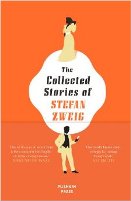 Inspired by Wes Anderson's new film The Grand Budapest Hotel, I've been reading The Collected Stories of Stefan Zweig. It's an extraordinary collection. One tale in particular that has lingered is "Mendel the Bibliophile," in which Zweig writes that "you create books solely to forge links with others even after your own death, thus defending yourself against the inexorable adversary of all life, transience and oblivion."
Inspired by Wes Anderson's new film The Grand Budapest Hotel, I've been reading The Collected Stories of Stefan Zweig. It's an extraordinary collection. One tale in particular that has lingered is "Mendel the Bibliophile," in which Zweig writes that "you create books solely to forge links with others even after your own death, thus defending yourself against the inexorable adversary of all life, transience and oblivion." 


.JPG)
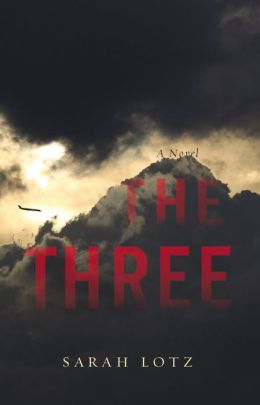 You nailed the voices of the many different characters, who include Southern religious women, a British actor, a prostitute and Japanese teenagers. Which were easiest to write and which voices did you find most challenging?
You nailed the voices of the many different characters, who include Southern religious women, a British actor, a prostitute and Japanese teenagers. Which were easiest to write and which voices did you find most challenging? Molly Wizenberg's
Molly Wizenberg's The season he was obsessed with dough, making and deconstructing recipe after recipe--were you surprised at his capacity to stick with something for the long run?
The season he was obsessed with dough, making and deconstructing recipe after recipe--were you surprised at his capacity to stick with something for the long run?